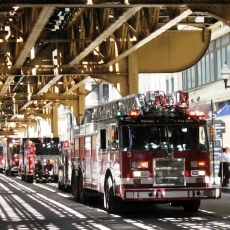

Young Lady (any female radio operator, regardless of age)īest regards + Love and kisses used on YL networks as a sign-offĭerogatory term for a disliked operator (Referring to 75 meter ham band)Īn amateur radio Morse code conversation example Signal report format ( Readability / Signal Strength / Tone)Īmateur radio slang from SK, the last signal received from a radio contactįormer Young Lady (female spouse of radio operator, regardless of age) Report / Repeat please / I repeat as follows Received as transmitted (origin of "Roger") Please (not appropriate after CQ see LID) Old Man (any male radio operator or the spouse of a female radio operator, both regardless of age) Prefix indicating a message to or from the master of a ship concerning its operation or navigation after K6PCH DE W1AW KN only station K6PCH should reply to W1AW) Over to you only the previously named station should respond (e.g. Long distance, foreign countries (sometimes refers to long distance contact) What call sign? (used with "?" to request a contact's call sign) CP A1BCD W2XYZ for "calling stations A1BCD and W2XYZ")Ĭalling (calling all stations / any station) (do not follow with PLS or PSE see LID)Īll stations distress (used preceding SOS to let all operators know of an impending distress signal)Ĭalling station (followed by the call sign of a particular station, e.g. Table of selected Morse code abbreviationsĪll after (used after question mark to request a repetition)īreak (to pause transmission of a message, say)Ĭalling several stations (followed by the call signs of two or more stations, e.g. The following Table of Morse code abbreviations and further references to Brevity codes such as 92 Code, Q code, Z code, and R-S-T system serve to facilitate fast and efficient Morse code communications. PASCOELA = " Locals have plundered everything from the wreck." However, these cyphers are typically "fake" words six characters long, or more, used for replacing commonly used whole phrases, and are distinct from single-word abbreviations. From 1845 until well into the second half of the 20th century, commercial telegraphic code books were used to shorten telegrams, e.g. Now without cost, online you may download, view and print Russian Phrases for Amateur Radio and listen to the audio recordings to learn pronunciation.Main article: Commercial code (communications)Īlthough a few abbreviations (such as SX for "dollar") are carried over from former commercial telegraph codes, almost all Morse abbreviations are not commercial codes. There was a nominal cost of $6 ($8 international) for the booklet, and $6 ($8 international) for the audio cassette. The Beyond War movement of the 1980s (later Foundation for Global Community) sponsored the original printings of this educational endeavor to build global dialogue and cooperation.

With the increasing realization that every relationship matters, and that one person can make a difference, Russian Phrases for Amateur was ordered by over 1,500 operators from 1,300 cities, including all 50 United States and 44 countries worldwide - all before the World Wide Web. The author, self-taught in Russian, undertook this project out of a personal interest in improving the quality of his QSOs with Soviet hams and to enhance USA-USSR relations during a time of need and change. While the booklet has not been updated in quite a few years, it remains fundamentally useful. (11) RUSSIAN ALPHABET (in Cyrillic and CW) - 3 MB

(9) END OF THE QSO (saying "goodbye") - 7 MB (2) CQ, CQ, CQ (seeking a contact) - 5 MB


 0 kommentar(er)
0 kommentar(er)
